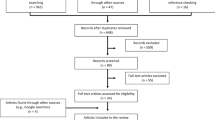Abstract
Employment-contingent health insurance (ECHI) has been criticized for tying insurance to continued employment. Our research sheds light on two central issues regarding employment-contingent health insurance: whether such insurance “locks” people who experience a health shock into remaining at work; and whether it puts people at risk for insurance loss upon the onset of illness, because health shocks pose challenges to continued employment. We study how men’s dependence on their own employer for health insurance affects labor supply responses and health insurance coverage following a health shock. We use the Health and Retirement Study (HRS) surveys from 1996 through 2008 to observe employment and health insurance status at interviews 2 years apart, and whether a health shock occurred in the intervening period between the interviews. All employed married men with health insurance either through their own employer or their spouse’s employer, interviewed in at least two consecutive HRS waves with non-missing data on employment, insurance, health, demographic, and other variables, and under age 64 at the second interview are included in the study sample. We then limited the sample to men who were initially healthy. Our analytical sample consisted of 1,582 men of whom 1,379 had ECHI at the first interview, while 203 were covered by their spouse’s employer. Hospitalization affected 209 men with ECHI and 36 men with spouse insurance. A new disease diagnosis was reported by 103 men with ECHI and 22 men with other insurance. There were 171 men with ECHI and 25 men with spouse employer insurance who had a self-reported health decline. Labor supply response differences associated with ECHI—with men with health shocks and ECHI more likely to continue working—appear to be driven by specific types of health shocks associated with future higher health care costs but not with immediate increases in morbidity that limit continued employment. Men with ECHI who have a self-reported health decline are significantly more likely to lose health insurance than men with insurance through a spouse. With the passage of health care reform, the tendency of men with ECHI as opposed to other sources of insurance to remain employed following a health shock may be diminished, along with the likelihood of losing health insurance.
Similar content being viewed by others
References
Adams S. J. (2004) Employer-provided health insurance and job change. Contemporary Economic Policy 22(3): 357–369
Bradley C., Neumark D., Luo Z. et al (2006) Employment-based health insurance, illness, and labor supply of women: Evidence from married women with breast cancer. Health Economics 16(7): 719–734
Bradley, C., Neumark, D., & Barkowski, S. (2012). Does employer-provided health insurance constrain labor supply adjustments to health shocks? New evidence on women diagnosed with breast cancer. National Bureau of Economic Research. Working paper #18060. Available from URL: http://www.nber.org/papers/w18060.
Cooper P. F., Monheit A. C. (1993) Does employment-related health insurance inhibit job mobility. Inquiry 30(4): 400–416
Gruber J., Madrian B. C. (1994) Health insurance and job mobility: The effects of public policy on job-lock. Industrial and Labor Relations Review 48(1): 86–102
Kapur K. (1997) The impact of health on job mobility: A measure of job lock. Industrial and Labor Relations Review 51(2): 282–297
Madrian B. C. (1994) Employment-based health insurance and job mobility: Is there evidence of job-lock. Quarterly Journal of Economics 109(1): 27–54
Montz, E., & Seshamani, M. (2011). Insurance insecurity: Families are losing employer-sponsored insurance coverage. Available from URL: http://www.HealthReform.gov/reports/insurance/insuranceinsecuritypdf.pdf.
Schwartz, K., Martin, K., & Schmidt, C. (2009). Spending to survive: Cancer patients confront holes in the health insurance system. Kaiser Family Foundation (7851).
Stroupe K., Kinney E., Kniesner T. (2000) Chronic illness and health insurance-related job lock. Journal of Policy Analysis and Management 20(3): 525–544
Tunceli K., Short P. F., Moran J. R. et al (2009) Cancer survivorship, health insurance, and employment transitions among older workers. Inquiry 46(1): 17–32
Author information
Authors and Affiliations
Corresponding author
Additional information
Key messages Informs policies regarding the effects of employment-based health insurance on labor supply and continuity of health insurance among those experiencing health shocks.
Men with employer-provided health insurance appear to experience a form of job lock—or “employment lock”—following a health shock because of the ECHI incentives. Prior estimates of “job lock” may understate the true effects of ECHI because they are confounded by a health shock’s negative impact on employment.
Those with ECHI are more likely to lose health insurance following some types of health shocks.
Rights and permissions
About this article
Cite this article
Bradley, C.J., Neumark, D. & Motika, M. The effects of health shocks on employment and health insurance: the role of employer-provided health insurance. Int J Health Care Finance Econ 12, 253–267 (2012). https://doi.org/10.1007/s10754-012-9113-2
Received:
Accepted:
Published:
Issue Date:
DOI: https://doi.org/10.1007/s10754-012-9113-2




